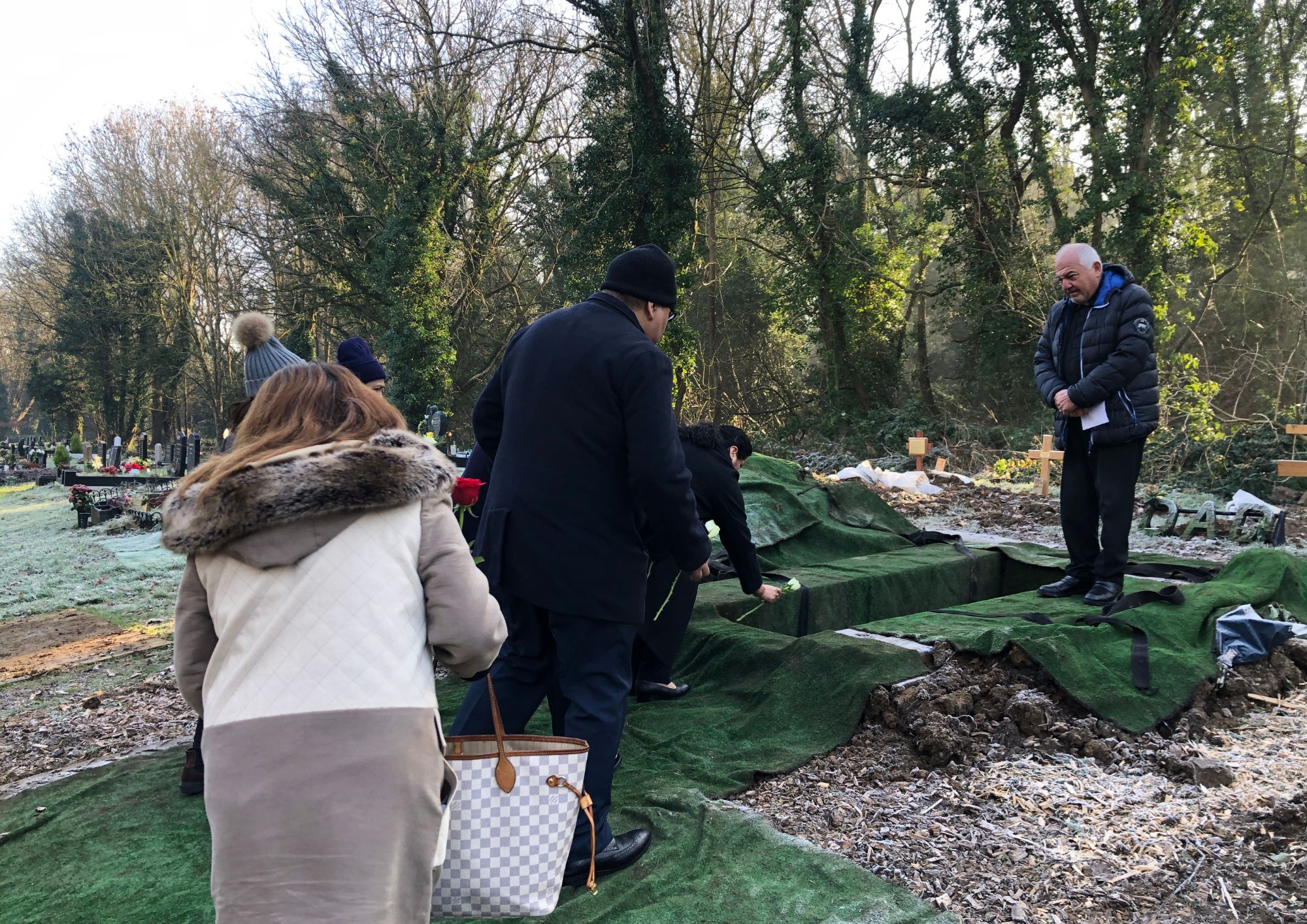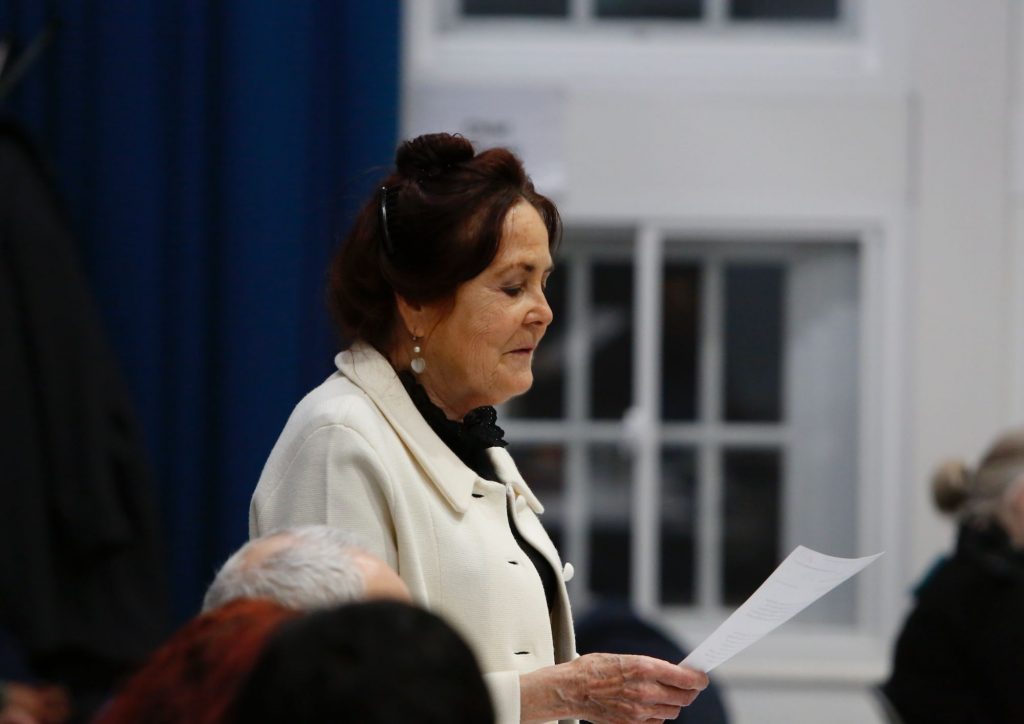Cost-of-dying will lead to more ‘pauper’s funerals’
New figures show how many 'public health' burials there are every year in Camden
Friday, 17th March 2023 — By Frankie Lister-Fell

The ‘public health funeral’ for Lidia Venegas last month
IT sounds like something out of a Dickensian novel, but council-run “pauper’s funerals” still remain a common occurrence.
New figures revealed by the Town Hall show that there were 63 public health funerals – as they are now known – in Camden last year. This averages out at least one a week, and campaigners fear the numbers are only going to grow due to the cost-of-living crisis and increasing social isolation.
With the average cost of a basic funeral costing £3,953, it is perhaps unsurprising that many people are unable to find the money to cover a cremation or burial.
In these cases, or in the recent high profile example of the death of a woman experiencing homelessness in Kentish Town, a local authority can step in.
This may be when no next of kin is found or family and friends are not willing or financially able to pay for a funeral.
It’s up to each council to decide how these funerals are conducted, and historically a very basic service saw people buried in unmarked graves with multiple coffins.
More recently, Camden pays for funeral contractors to provide a “dignified service” including a coffin and transportation in a hearse to the crematorium or cemetery.
The totals were released at a recent council meeting, which confirmed that in 2022 there were 63 public health funerals in the borough, costing the council £81,089. In 2021 there were 59.

Jenny Headlam-Wells
Kentish Town councillor Jenny Headlam-Wells earlier this year attended the public health funeral for Lidia Venegas, who was found dead in the street in January after months living in a makeshift shelter.
She told last month’s full council meeting: “Fortunately for Lidia there was a large congregation of friends and acquaintances from Bolivia and from Camden who brought flowers, pipe music and hymns to the graveside.
“I suspect other people in Lidia’s situation might not be as fortunate, and there are likely to be many more deaths of rough sleepers and socially isolated people in our borough in the future.”
Health chief Councillor Anna Wright said: “It’s a statutory duty that we take very seriously and perform very well. The approach that’s taken, and we contract Cooperative Funeral services to undertake the arrangements, is that the deceased is offered the same dignity that there would be in the case of a private funeral and that no difference should be evident. I think that is absolutely how it should be.”
She later told the New Journal about how the process is carried out: “The first thing to make clear is the majority of these people are not homeless people,” she said.
“It can be people who have homes, but there’s no one to organise their funeral or pay for it. We register the death and try to find next of kin or friends.
“We undertake property searches, sometimes in difficult environmental conditions to find evidence of people related to or in contact with a deceased person.
“All their financial documents, wills, insurance, pensions, jewellery get carefully managed and acted on if appropriate. So if somebody has resource but they happen not to have a family member to organise a funeral, their estate is used to pay for it.”
In January, Quaker Social Action submitted a report on funeral poverty – detailing price rises and the lack of regulation of the sector – to the United Nations.